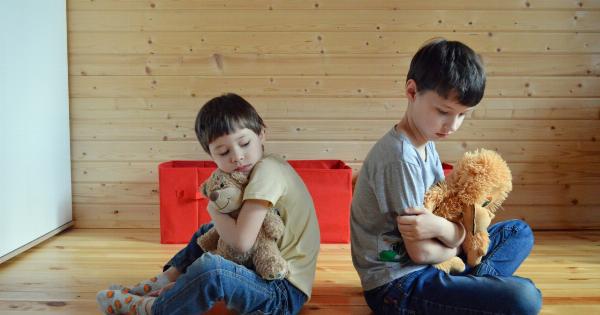Dementia is a debilitating syndrome that affects cognitive functioning. It is often associated with aging but can occur in people of all ages.
A growing body of research suggests that childhood trauma can increase the risk of developing dementia later in life. Trauma can be physical, emotional or psychological. The effects of trauma on the brain can be long-lasting and can lead to structural changes that increase the risk of developing dementia.
The Link Between Childhood Trauma and Dementia
Studies have shown that people who experienced childhood trauma have a higher risk of developing dementia later in life compared to those who did not experience trauma.
Childhood trauma can include physical abuse, sexual abuse, emotional neglect, and psychological trauma. The effects of trauma can be cumulative and have a lasting impact on an individual’s physical and mental health.
The link between childhood trauma and dementia can be explained by the long-term effects of stress on the brain. Trauma triggers the release of stress hormones such as cortisol and adrenaline.
When these hormones are released due to trauma, they can damage brain cells and cause inflammation. This can result in the development of brain changes that are associated with dementia.
Types of Childhood Trauma that Increase the Risk of Dementia
Research suggests that specific types of childhood trauma can increase the risk of developing dementia later in life.
Physical Abuse
Children who experience physical abuse are more likely to develop dementia. Studies have shown that physical abuse can result in changes in the brain structure that can lead to cognitive decline and dementia in later life.
Physical abuse can also cause damage to brain cells that may become apparent years after the abuse occurred.
Sexual Abuse
Sexual abuse can have long-lasting effects on an individual’s mental health. It can also increase the risk of developing dementia in later life.
Sexual abuse can lead to a heightened risk of depression and anxiety, which have both been linked to an increased risk of developing dementia.
Emotional Neglect
Emotional neglect can affect a child’s development and can lead to long-term effects on mental and physical health. Studies have shown that emotional neglect can increase the risk of developing dementia later in life.
Emotional neglect can trigger the same stress hormones that physical trauma triggers, which can cause changes in the brain that increase the risk of developing dementia.
Psychological Trauma
Psychological trauma can encompass a wide range of experiences, including witnessing or experiencing violence, abuse, natural disasters, and other traumatic events.
Psychological trauma can cause long-lasting damage to the brain and can lead to a higher risk of developing dementia later in life.
Treating Childhood Trauma to Reduce the Risk of Dementia
Early detection and treatment of childhood trauma can help reduce the risk of developing dementia later in life. Treatment can include therapy and medications to manage symptoms of trauma.
Therapy can be particularly helpful in addressing the long-term effects of trauma, including changes in the brain structure.
Therapy can also help individuals develop coping strategies to manage stress and anxiety, which can help mitigate the effects of trauma on the brain.
Medications can be prescribed to manage depression and anxiety, which are both linked to a higher risk of developing dementia later in life.
Conclusion
Childhood trauma can have long-lasting effects on an individual’s mental and physical health. The link between childhood trauma and dementia is becoming increasingly apparent.
Understanding the types of childhood trauma that increase the risk of dementia, and treating trauma early, can help mitigate the risk of developing dementia later in life.


























